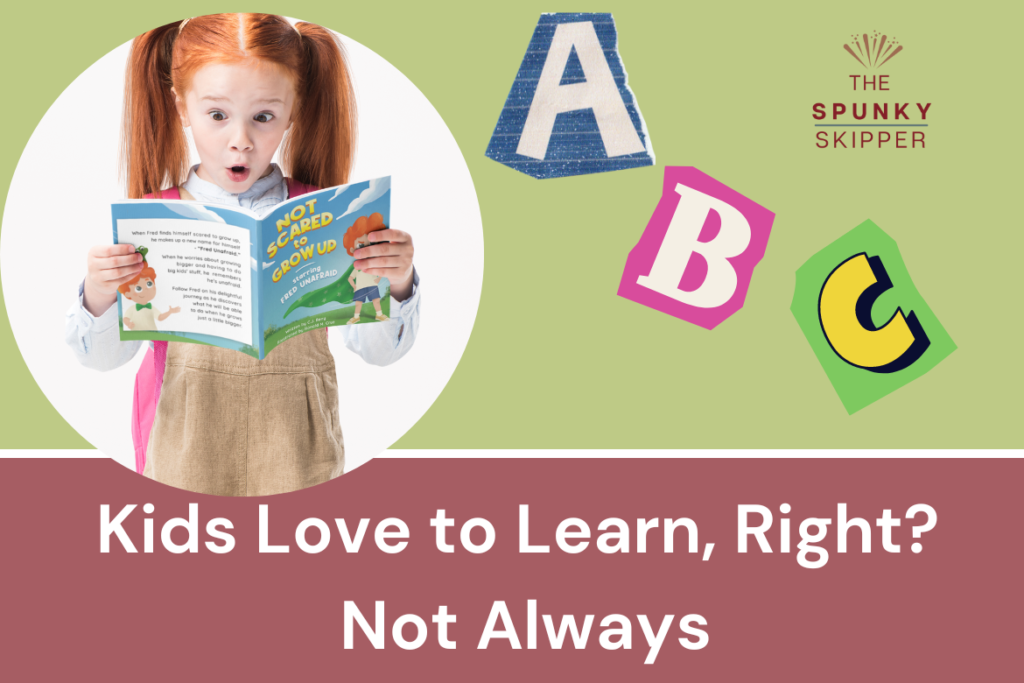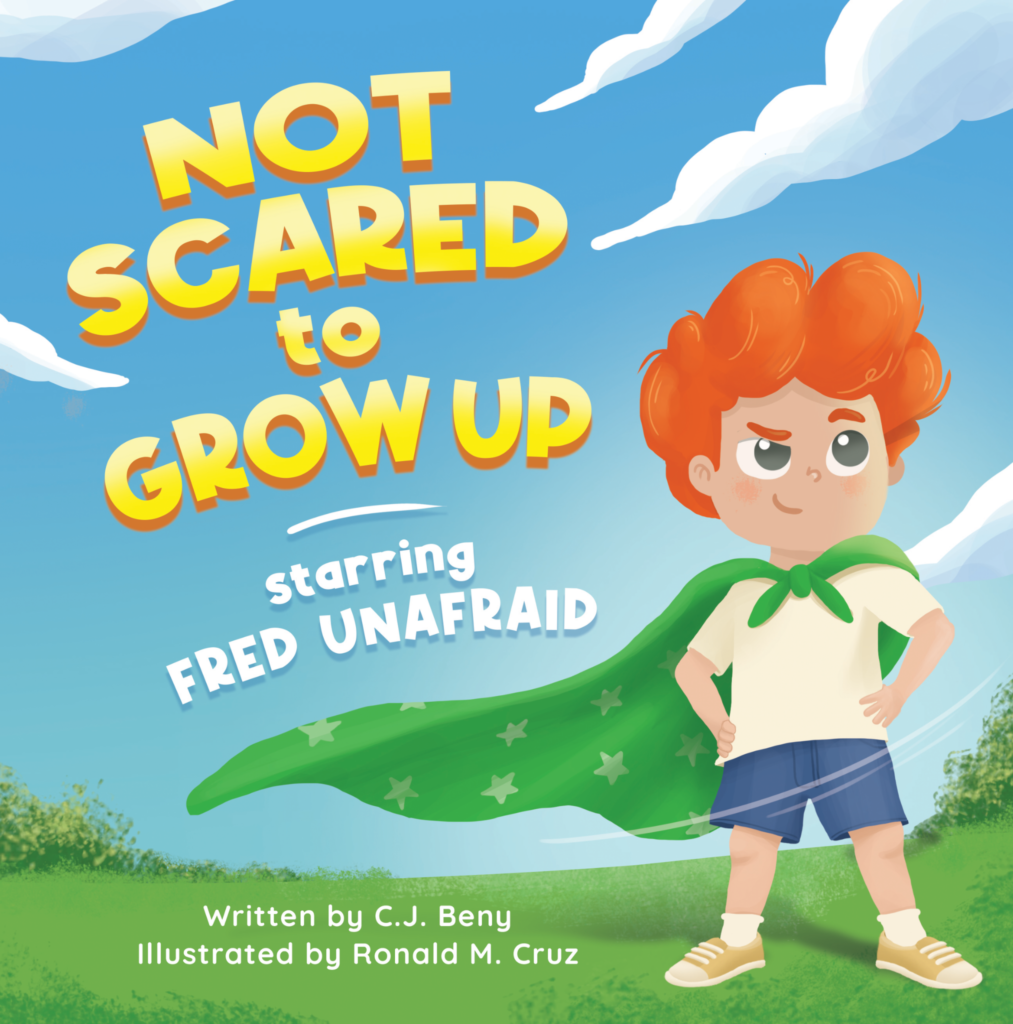Can your Grandchild/Child get into Kindergarten?
Updated Sept 2022 – We’re tongue-and-cheek about getting them in kindergarten, but read on to find out a few myths surrounding early learning and 7 tips you can try. As a young grandparent yourself, lots has changed over the years in many aspects of our lives and that of your grandkids, even in how kids learn. Yes, the proliferation of technology, TV shows, and toys are in abundance, but what hasn’t changed is how kids learn best and our interaction with them.
Now the pandemic. How has this changed the way kids learn?
Some of you may say the kids are behind in their learning as many were taught at home, with a parent/guardian looking over their shoulder in between their own Zoom/Teams meetings. Others, who regularly homeschool, with say that’s rubbish, but they are used to teaching their kids at home. They have plans, schedules, routines, etc. It’s a very different perspective and experience.
During the pandemic, as a grandparent, you may have been asked to chip in and help with the home schooling. How did that work out? Even older siblings may have been asked to pitch in and help. Most regions have kids back to school, in-person, in-class, some may have continued with a hybrid approach. As we’ved learned kids learn in many different ways, but one thing is for sure. The earlier we start to engage with kids – interactively showing, engaging and practicing, the better their brains develop.
Did you know 90% of the brain is developed by the time the child reaches 5, or in kindergarten, according to First Things First.
Needless to say, spending structured time to teach during these early years is critical to the child’s development and learning the language skills they’ll need for school and for life.
Myths about how kids learn
MYTH #1
You should wait until your child is “ready” for preschool to start teaching them how to write, spell and read.
MYTH #2
Children only learn by listening
MYTH #3
Playing is only for games or the outdoors
MYTH #4
Children learn best by themselves
MYTH #5
Kids should only learn essential skills in a formal, structured way.
Good learning habits are instilled at an early age. Some kids will naturally be eager to learn and apply what they’ve learned over and over while some may have a more difficult time. Regardless of your grandchild’s/child’s learning abilities, it’s much more fun to learn when there is consistency, support, confidence and, yes, fun….lots of it.
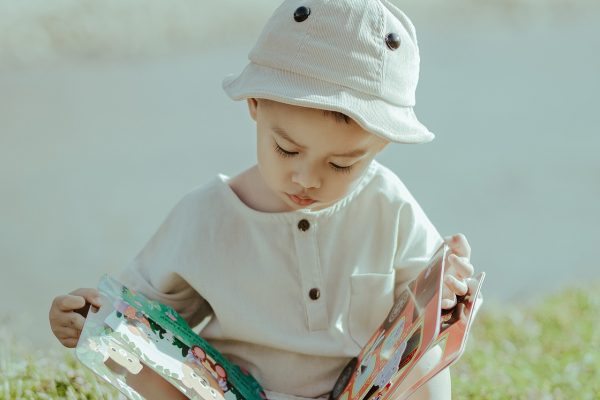
Now to get them into kindergarten
Of course, they’ll get into kindergarten, but imagine their confidence level when they go to school that first week and they already know how to write the alphabet and maybe read a few words?
7 tips to better learning….
1

How does the child in your life learn? Kids learn in so many ways, but not all learn the same. Pay attention to what stimulates them: listening, acting, touching, repeating, watching. Create opportunities to learn around these elements.
2

Read together. Even if your grandchild/child is too young, pick a quiet place, read to them and run your finger under each word as you say them. They’ll eventually put the letters and pronunciation together and start to form their own words.
3

Be silly. Encourage their curiosity. Find items in the house that relate to what they’re learning. Beans, sticks, rocks or healthy snacks to use for counting. And try a practice copybook for letter formation and spelling. Reward them with a healthy snack or fun stickers. What kid doesn’t like stickers?
4

Don’t put too much pressure on them to get it “right” all the time. Learning is a process. They’ll want to keep learning when encouraged, not discipline them.
5

If the child is not yet in school full-time, create a schedule for learning. Consistency and repetition are key, but remember to change things up a bit so they are learning the same thing in new ways.
6

Find a desk, table or coffee table that’s the proper height for the child and away from distractions. Sit with them. Have supplies on hand i.e. activity books or downloaded learning worksheets, pencils, erasers, reward stickers or healthy treats.
7

When kids first learn how to write, it’s challenging for them to hold the pencil properly. Form is important in learning how to round out the corners of letters and numbers. They have cool silicone pen/pencil holders in animal shapes that kids like. It helps them to hold the writing took correctly. You can purchase the holders along with practice copybooks that I designed for learning (and it comes with a cut organic cotton knapsack perfect for small backs.
In July 2022, I released my first children’s book, click the link on the Not Scared to Grow up Starring Fred Unafraid book to learn more or visit my author page.
NEW BOOK ALERT:
‘Twas the Night Santa Fell on His Head – Coming out Sept 2023
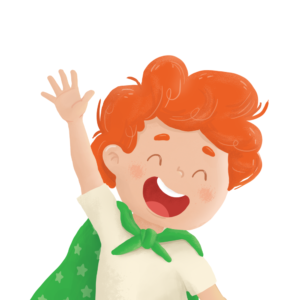
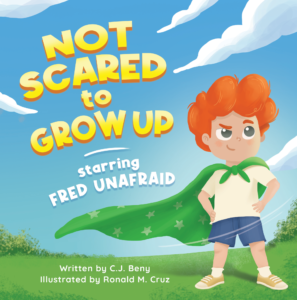
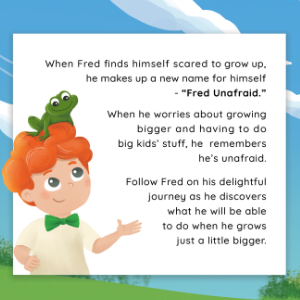
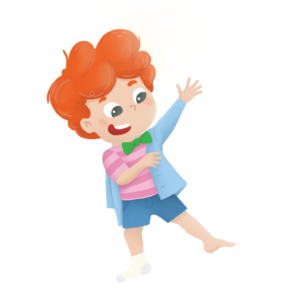
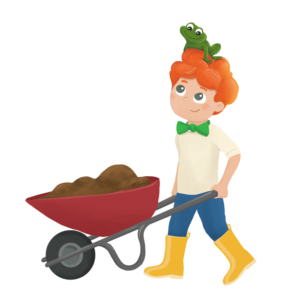
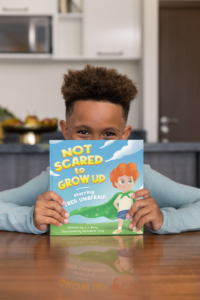
Other articles you may be interested in…

